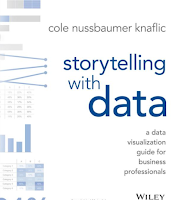Even when I feel right, there is a lesson
This is a challenging post to write because it's about something I'm still wrestling with. From experience, I know that when I feel passionately right about something, I likely have a lesson to learn that will prove the situation is more nuanced than my current understanding. If you read my posts here or know me in person you're probably already nodding: there is something more to be learned here.
The situation (i.e., why I feel right)
Long story short: We are trying to get support from another team in the organization for some creative concepts to support specific wellness messaging for employees. The team has indicated a willingness to help in spite of being stretched pretty thin. But the process they insist on, ostensibly to protect them from extra work, has produced design concepts we can't use. Twice.
The approach they've taken is to develop the concepts in isolation—with no space for discussion of what we're trying to achieve with the people doing the work, and no opportunity to iterate on the resulting design. We've been asked to discuss our requirements with an intermediary at their end, not someone involved in doing the work. Moreover, the specific constraints we've discussed in those meetings seems to have fallen through the cracks; I'd go further, and say the work has run counter to what was discussed in some ways.
What I am realizing just now (i.e., taking some personal responsibility)
Even as I articulate the above , I realize I have some work to do: I should carve out the time to really hear the person on the other side of this particular conflict, the head of the creative team. I need to better understand what might be at the heart of their insistence on what strikes me as a counter-productive process. Is there some way I can put to rest their concerns about how we engage with them?
And a further reflection: even in trying to resolve this issue over the past several months, and expressing how I don't feel it's setting any of us up for success, I continue to do that with the intermediaries we've been directed to. Given that I see that as the source of the conflict, how could it possibly be the source of the solution?
So writing this has made clear my next step. And that's huge. I expect there is more to learn too. And so stay tuned for future post once I've learned it.
* (Re-published with typo corrected on Jan 1.)
The situation (i.e., why I feel right)
Long story short: We are trying to get support from another team in the organization for some creative concepts to support specific wellness messaging for employees. The team has indicated a willingness to help in spite of being stretched pretty thin. But the process they insist on, ostensibly to protect them from extra work, has produced design concepts we can't use. Twice.
The approach they've taken is to develop the concepts in isolation—with no space for discussion of what we're trying to achieve with the people doing the work, and no opportunity to iterate on the resulting design. We've been asked to discuss our requirements with an intermediary at their end, not someone involved in doing the work. Moreover, the specific constraints we've discussed in those meetings seems to have fallen through the cracks; I'd go further, and say the work has run counter to what was discussed in some ways.
What I am realizing just now (i.e., taking some personal responsibility)
Even as I articulate the above , I realize I have some work to do: I should carve out the time to really hear the person on the other side of this particular conflict, the head of the creative team. I need to better understand what might be at the heart of their insistence on what strikes me as a counter-productive process. Is there some way I can put to rest their concerns about how we engage with them?
And a further reflection: even in trying to resolve this issue over the past several months, and expressing how I don't feel it's setting any of us up for success, I continue to do that with the intermediaries we've been directed to. Given that I see that as the source of the conflict, how could it possibly be the source of the solution?
So writing this has made clear my next step. And that's huge. I expect there is more to learn too. And so stay tuned for future post once I've learned it.
* (Re-published with typo corrected on Jan 1.)

Comments
Post a Comment